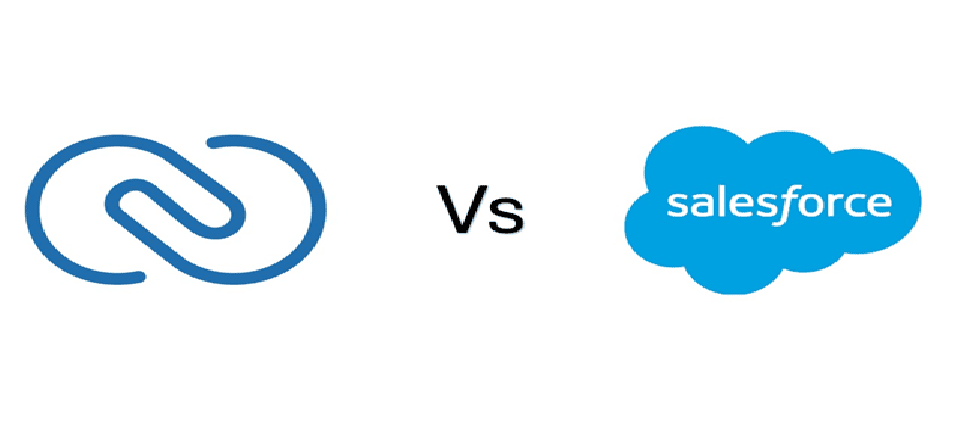Zoho CRM and Salesforce are both powerful CRM platforms, but they cater to different business needs and budgets. While Salesforce is often considered the industry standard, Zoho CRM has emerged as a strong contender, particularly for small and medium-sized businesses (SMBs).

Zoho CRM's Unmatched Strengths for Small and Medium Businesses

Affordability: Maximizing ROI Without Breaking the Bank
One of the most significant hurdles for SMBs adopting new technology is cost. Enterprise-grade CRM solutions often come with hefty licensing fees, complex implementation costs, and hidden charges that quickly escalate. Zoho CRM, conversely, is renowned for its exceptional affordability. It offers tiered pricing plans that cater to businesses at different stages of growth, from free basic versions for very small teams to competitively priced professional and enterprise editions. This allows SMBs to access powerful CRM functionalities without compromising their financial stability.
Ease of Use: Quick Adoption, Minimal Learning Curve
Time is money for SMBs. Protracted implementation cycles and steep learning curves can severely hamper productivity and lead to frustration. Zoho CRM distinguishes itself with its intuitive and user-friendly interface. Its dashboard is clean, navigation is logical, and the workflow feels natural. This design philosophy translates into rapid user adoption across sales, marketing, and customer service teams. Employees can quickly grasp the system's functionalities, reducing the need for extensive, costly training sessions.
Comprehensive Features: All You Need, and More
Despite its affordability and ease of use, Zoho CRM doesn't compromise on features. It offers a comprehensive suite of functionalities that rival many higher-priced competitors, making it a true all-in-one solution for managing customer relationships:
- Lead Management: Efficiently capture, track, and nurture leads from various sources (website, social media, events) through their entire lifecycle.
- Sales Automation: Automate routine sales tasks like lead assignment, follow-up reminders, and quote generation, freeing up sales reps to focus on selling.
- Contact & Account Management: Centralize all customer information, including communication history, purchase records, and personal preferences, providing a 360-degree view.
- Deal Management: Track the progress of deals through customizable sales pipelines, forecast revenues, and identify potential roadblocks.
- Analytics & Reporting: Gain deep insights into sales performance, marketing campaign effectiveness, and customer behavior with customizable reports and dashboards, enabling data-driven decision-making.
- Marketing Automation Integration: Seamlessly connect with Zoho Marketing Automation (or Zoho CRM Plus) to execute targeted email campaigns, social media outreach, and customer journeys.
- Customer Service Integration: Link with Zoho Desk to provide consistent customer support and track service requests.
This rich feature set ensures that SMBs have all the tools necessary to manage their entire customer journey, from initial contact to post-sales support, all within a single platform.
Scalability: Growing with Your Business
SMBs are constantly evolving, and their software solutions must evolve with them. Zoho CRM offers exceptional scalability, adapting effortlessly as your business expands. Whether you're adding more users, integrating new departments, or expanding into new markets, Zoho CRM can accommodate your growth without requiring a complete system overhaul. You can easily upgrade between pricing tiers as your needs become more sophisticated, accessing advanced features like custom modules, deeper analytics, and expanded storage.
Excellent Customer Support: A Partner in Your Success
Even the most intuitive software requires support from time to time. Zoho CRM provides excellent customer support, offering a variety of channels including online documentation, community forums, email support, and phone assistance. This ensures that SMBs have access to help whenever they encounter a challenge or need guidance. Prompt and effective support minimizes downtime and ensures that your team can continue leveraging the CRM's capabilities without interruption. This commitment to customer success solidifies Zoho CRM's position as a reliable partner for SMBs navigating their growth journey.
Zoho CRM Pricing and Feature Comparison (US Pricing - Approximate)
Feature | Free | Standard | Professional | Enterprise | Ultimate |
Price (per user/month) in US | $0 (up to 3 users) | $14 (annual) / $20 (monthly) | $23 (annual) / $35 (monthly) | $40 (annual) / $50 (monthly) | $52 (annual) / $65 (monthly) |
Contact & Lead Mgmt | ✔ | ✔ | ✔ | ✔ | ✔ |
Deals/Opportunities | ✔ | ✔ | ✔ | ✔ | ✔ |
Tasks & Activities | ✔ | ✔ | ✔ | ✔ | ✔ |
Basic Reporting | ✔ | ✔ | ✔ | ✔ | ✔ |
Workflow Automation | X | ✔ | ✔ | ✔ | ✔ |
Email Marketing (Mass) | X | Limited | More features | More features | Advanced features |
Sales Forecasting | X | ✔ | ✔ | ✔ | ✔ |
Custom Modules/Fields | Limited | ✔ | ✔ | ✔ | ✔ |
Webhooks | X | X | ✔ | ✔ | ✔ |
Google Ads Integration | X | X | ✔ | ✔ | ✔ |
Validation Rules | X | X | ✔ | ✔ | ✔ |
Zia AI (Basic) | X | X | X | ✔ | ✔ |
Advanced Customization | X | X | X | ✔ | ✔ |
Multi-Portals | X | X | X | ✔ | ✔ |
Zoho Analytics (Advanced BI) | X | X | X | X | ✔ |
Dedicated IP for Email | X | X | X | X | ✔ |
Salesforce: A Powerful CRM with Enterprise-Level Complexity
Salesforce is a dominant force in the CRM market, renowned for its extensive features, robust customization options, and powerful platform. While it's a popular choice for large enterprises, its complexity and pricing structure can be a significant consideration for SMBs.
Salesforce's Strengths for Large and Growing Businesses:
- Scalability
- Extensive Customization
- Robust Functionality
- AppExchange Ecosystem
- Strong Brand Reputation
Salesforce Sales Cloud Pricing and Feature Comparison (US Pricing - Approximate)
Feature | Essentials | Professional | Enterprise | Unlimited |
Price (per user/month) | $25 | $80 | $165 | $330 |
Contact & Account Mgmt | ✔ | ✔ | ✔ | ✔ |
Opportunity Tracking | ✔ | ✔ | ✔ | ✔ |
Lead Management | ✔ | ✔ | ✔ | ✔ |
Task & Event Management | ✔ | ✔ | ✔ | ✔ |
Basic Reporting & Dashboards | ✔ | ✔ | ✔ | ✔ |
Workflow Automation (Basic) | Limited | ✔ | ✔ | ✔ |
Email Integration | ✔ | ✔ | ✔ | ✔ |
Customizable Reports & Dashboards | X | ✔ | ✔ | ✔ |
Sales Forecasting | X | ✔ | ✔ | ✔ |
Rules-Based Automation | X | X | ✔ | ✔ |
Custom Apps & Tabs | X | X | ✔ | ✔ |
Web API Access | X | X | ✔ | ✔ |
Sandboxes (for testing) | X | X | ✔ | ✔ |
Advanced Reporting & Analytics | X | X | ✔ | ✔ |
Sales Collaboration Tools | X | X | ✔ | ✔ |
24/7 Support | X | X | ✔ | ✔ |
The Zoho Advantage: A Unified Ecosystem for SMB Growth
Zoho offers a comprehensive suite of over 45 interconnected business applications, creating a seamless and unified ecosystem. This integration provides significant advantages over Salesforce, which often requires costly third-party integrations to achieve similar functionality.
Key integrations relevant to CRM include:
- Zoho Books: Seamlessly integrates with Zoho CRM for streamlined accounting and financial management. This eliminates data silos and provides a holistic view of customer interactions and financial transactions.
- Zoho Marketing Automation: Extends CRM capabilities with advanced marketing automation features, such as email marketing, lead nurturing, and campaign management, often at a lower cost than Salesforce's Marketing Cloud.
- Zoho Desk: Integrates with Zoho CRM to provide a unified customer support platform, allowing businesses to track customer interactions across sales and support channels.
- Zoho Projects: Connects CRM with project management, allowing sales teams to seamlessly hand off projects to implementation teams and track progress.
This unified approach offers SMBs several key benefits:
- Cost Savings: Eliminates the need for expensive third-party integrations.
- Improved Efficiency: Streamlines workflows and reduces data entry.
- Enhanced Data Visibility: Provides a 360-degree view of the customer across all business functions.
- Simplified Management: Manages all business operations from a single platform.
Conclusion
The true strength of Zoho lies in its comprehensive suite of interconnected applications. This ecosystem provides a level of integration and value that Salesforce struggles to match for SMBs. While Salesforce focuses primarily on CRM and requires costly third-party integrations for other business functions, Zoho offers a "one-stop shop" for all essential business needs. This unified approach simplifies operations, reduces costs, and provides a more holistic view of the customer, making Zoho CRM and its accompanying suite the more compelling choice for SMBs looking to streamline their business and drive sustainable growth.
